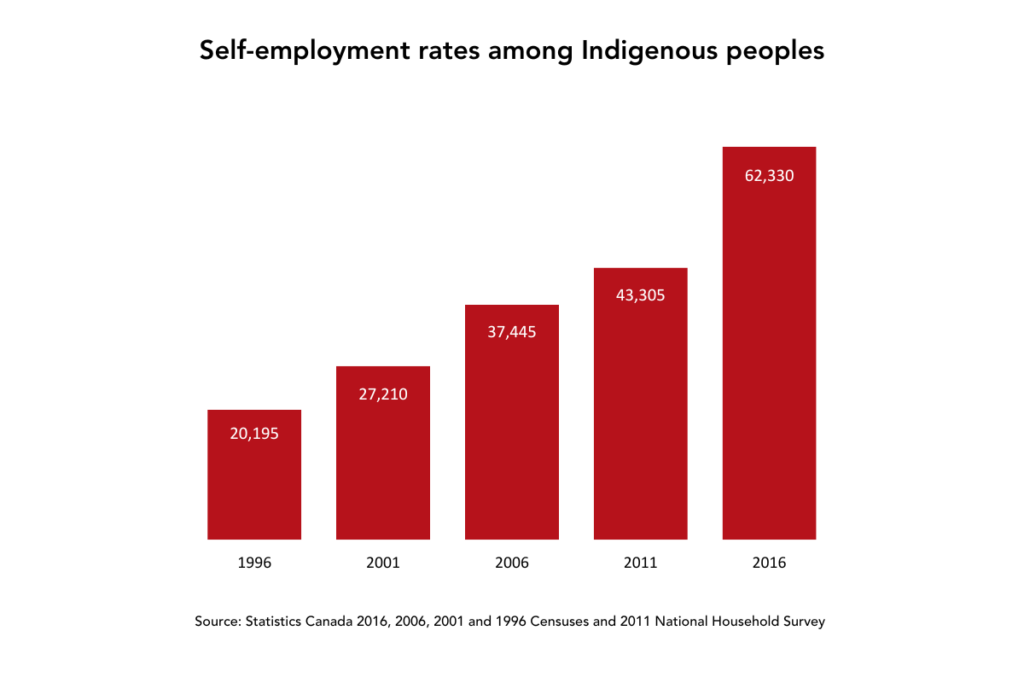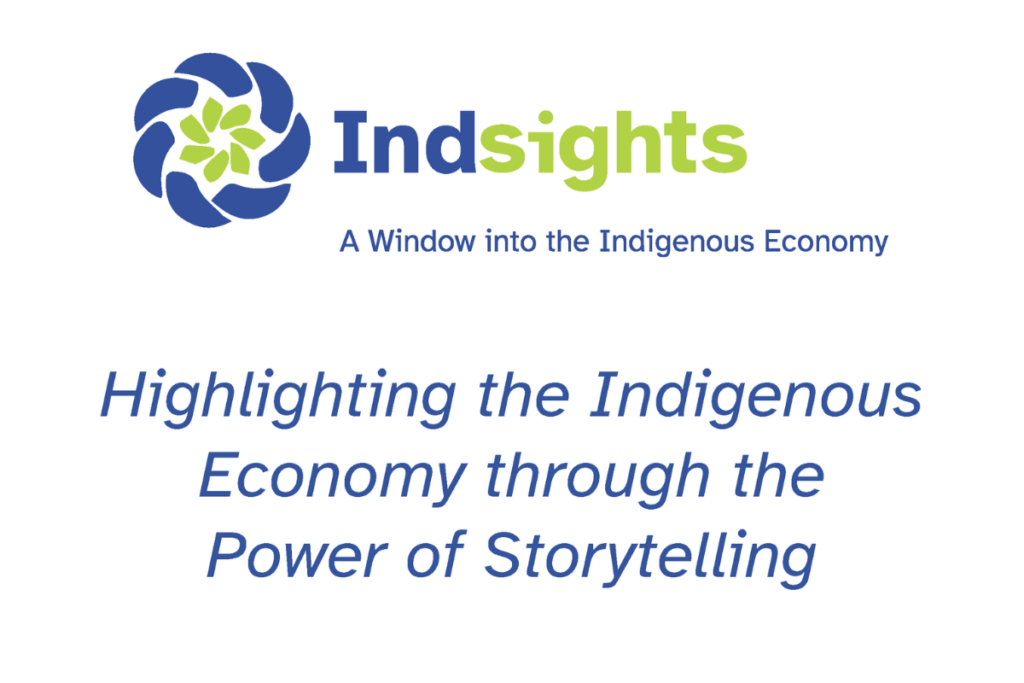Dear Valued Readers,
At Canadian Council for Aboriginal Business (CCAB), we firmly believe in the power of data-driven research to make a real difference in supporting economic reconciliation. Our research department was established with a clear goal in mind: to fully understand Indigenous businesses and gather the data necessary to support them effectively. Our focus is on who they are, what they need, and how we can assist them in achieving success. This commitment to research is the backbone of our work, and we are passionate about using it to make a meaningful impact.
For almost four decades, CCAB has worked to foster sustainable connections between First Nations, Inuit, Métis businesses, and the Canadian business community. As a national, Indigenous-led non-profit organization, CCAB supports a diverse membership of over 2,200 Indigenous and non-Indigenous businesses across Canada.
Over the past decade, our research team has embarked on a transformative mission, engaging with Indigenous business owners, corporations, government, and academic communities to provide invaluable insights into the emerging Indigenous economy.
Research with Impact
Through extensive projects and meticulous analysis of Indigenous economic participation, CCAB research has become a catalyst for change, working to bridge the gap between corporate Canada and Indigenous businesses. Our firm commitment ensures that Indigenous business owners and communities approach the Canadian business landscape with the knowledge needed for informed decision-making.
At CCAB, our research achievements have been both groundbreaking and impactful. Let’s explore some of the strong successes we have witnessed:
- Driving Policy Change: Our research provided the essential data and analysis to support the all-of-government goal of raising federal expenditure on Indigenous firms to 5%, in proportion to Canada’s Indigenous population. By advocating for equitable procurement, we pave the way for increased economic opportunities and empowerment.
- Empowering Indigenous Communities: CCAB research played a pivotal role in shaping Ontario’s progressive $95 million Indigenous Economic Development Fund (IEDF). This fund, informed by our research, makes targeted investments in Indigenous businesses and communities, propelling them toward sustainable growth and prosperity.
- Strengthening Partnerships: We have been instrumental in helping corporations across the country effectively engage with their Indigenous partners. Our insights foster better understanding, collaboration, and mutually beneficial relationships, driving shared success and sustainable economic growth.
- Improving Funding Initiatives: CCAB has engaged with over a dozen federal, provincial, and municipal ministries to enhance funding opportunities for Indigenous businesses. Our expertise and collaboration have influenced the development of new policies that promote community growth, ensuring Indigenous businesses receive the support they need to thrive.
The Indigenous Business Landscape
CCAB’s data holdings include a series of datasets from our Indigenous Business Survey conducted in 2010, 2015, and 2019, as well as a wide range of complementary studies. The Indigenous Business Survey collects data on Indigenous businesses, specifically who they are, what their experiences have been, and what they need for future growth and success to better understand the challenges that Indigenous businesses in Canada face. These national surveys are based on phone interviews with First Nations, Inuit, and Métis business owners, with an average of 1,100 respondents drawn from the CCAB membership as well as publicly available sources and directories.
Indigenous entrepreneurs in Canada have experienced significant growth and demonstrate tremendous potential for expanding their economic footprint. According to CCAB, the number of Indigenous business entrepreneurs has steadily increased since 1996, with over 60,000 reported nationwide.

These businesses have established themselves in various industries, including natural resources, construction, manufacturing, retail, and services, with a notable presence in every province and territory. The 2019 national survey revealed that Indigenous entrepreneurs have significant operations in the service sector (54%), manufacturing sector (21%), natural resources (13%), and construction (12%).
Indigenous businesspeople also excel in innovation, as seen by the novel ways they apply culture and tradition to contemporary issues. A substantial 61% of surveyed entrepreneurs use either Indigenous Traditional Knowledge or Indigenous Cultural Expressions. In 2019, half (51%) introduced new technologies into their businesses. Additionally, just over half (54%) invested in research and experimental development or introduced new products and services.
Indigenous entrepreneurs are also expanding their horizons and venturing into international export, demonstrating their ambition and potential for growth. Recent data reveals that 7% of Indigenous businesses engage in international trade, though this figure is lower than the Canadian business population, which stands at 12%. However, exporting provides a unique opportunity for Indigenous businesses to overcome locational disadvantages and tap into global markets.
While catching up to the average Canadian business’s export rate is important, there are indications that Indigenous businesses can leverage market trends to thrive and contribute to economic development within their communities. Several promising trends offer opportunities for Indigenous entrepreneurs, including Indigenous-made arts and crafts, sustainable and eco-friendly practices, and cultural awareness and partnerships. The United States, Australia, the European Union, and Aotearoa (New Zealand) are popular destinations for Indigenous-supplied goods and services.
Financially, Indigenous businesses show promising results, with three-quarters of surveyed entrepreneurs reporting profitability and expressing optimism for revenue growth in 2016. A significant 39% experienced revenue increases between 2018 and 2019, with over half of them (56%) achieving growth rates exceeding 20%. This optimism was tempered by the COVID-19 pandemic, which disproportionately impacted Indigenous businesses, notably those in natural resources, construction, and services industries. In particular, Indigenous tourism operators and businesses based in Indigenous communities faced numerous challenges and disruptions due to travel restrictions and closures.
Despite the achievements made by Indigenous entrepreneurs before the pandemic, they continue to face unique challenges unrelated to the global health crisis. Access to qualified Indigenous employees, skills training, investment opportunities, technical expertise, and mentoring are crucial for their continued success. The urgent need for skills training initiatives is particularly notable, as two-thirds of Indigenous business owners cite difficulties finding qualified Indigenous employees.
The COVID-19 pandemic has only exacerbated these concerns, with 73% of Indigenous business owners reporting negative impacts even as late as December 2021, and many remain unable to take on further loans. Indigenous entrepreneurs highlight the importance of developing digital skills and embracing online sales as key strategies for resilience and adaptability.
The resurgence of Indigenous businesses in Canada presents a significant economic growth and innovation opportunity. By providing the necessary resources and support, government, corporate, and academic communities can empower Indigenous entrepreneurs and contribute to a more inclusive and prosperous business landscape for all.
Exploring New Directions in Research
But our journey does not end here. CCAB research continues to champion economic development by gathering insights directly from Indigenous Peoples themselves and assisting in creating their research priorities. Through in-person interviews, surveys, and roundtables, we collect invaluable data on the benefits, successes, and challenges faced in economic empowerment. This ongoing research allows us to shape policies and initiatives that reflect the aspirations and realities of Indigenous communities.

Indsights: A Window into the Indigenous Economy
Indsights is a collaborative project between Humber College and CCAB, led by Professor Audrey Wubbenhorst. It aims to highlight the important role of Indigenous Peoples in the Canadian economy through digital storytelling. The project creates interactive online case studies to empower a diverse audience, including students, academics, professionals, and government officials, to explore and support Indigenous economies.
What makes Indsights unique is its focus on Indigenous business case studies. By sharing stories of success and overcoming obstacles, the project aims to inspire entrepreneurship and economic development among Indigenous Peoples through role modeling and representation. This work follows the recommendations of the Truth and Reconciliation Commission’s final report from 2015. The report emphasized the importance of reconciliation between Canada and Indigenous Peoples through 94 “calls to action.” Some of these calls to action focus on education and the inclusion of Indigenous perspectives in the mainstream curriculum. To fulfill this recommendation, it is necessary to provide educators with accessible and engaging content across various subjects.
Operating on three pillars—celebration, education, and action—Indsights celebrates Indigenous business excellence, educates about Indigenous economies, and empowers individuals to connect with Indigenous businesses.
Since 2020, Indsights has conducted qualitative interviews with Indigenous business owners to gather insights. These insights are transformed into engaging multimedia case studies, co-created with input from the entrepreneurs themselves. To date, there have been seven published case studies, and the project intends to generate more than 15 in total, including videos, written components, and teaching notes.
The initial phase focused on Indigenous businesses in retail, food and beverage, and sustainability sectors. In subsequent phases, the project expanded its reach to professional services, construction, and tourism.
The first three case studies featured the following Indigenous businesses:
- Birch Bark Coffee Company
- Shades of Gray Indigenous Pet Treats
- Pawgwasheeng Economic Development Corporation
The next set of case studies is scheduled for publication in spring 2023.
After the project’s completion in June 2024, the case studies and insights will be accessible for free as resources to foster connections, inspire, and inform future entrepreneurial journeys. Utilizing these resources can help educators compile a library of relevant material for their curriculums and classrooms. The portfolio will cover various Indigenous businesses, from small private enterprises to economic development corporations and industry partnerships.
Indigenous entrepreneurs frequently recount their early stages, the challenges they faced, and the support they needed to build their businesses. Despite barriers such as limited resources, networks, cultural and language differences, and government policies, Indigenous business owners find ways to overcome challenges. However, some obstacles are systemic and require collective efforts from businesses, government, and civil society.
To learn more about Indsights or explore collaborations (or how to become a CCAB member), visit the dedicated project website (indsights.ca) or contact the CCAB research department for assistance (ccab.com/research). The project aims to empower the next generation with a comprehensive understanding of Indigenous businesses and their contributions to society.
Together, we can unleash the full potential of Canada’s Indigenous economy, driving economic empowerment for Indigenous businesses and communities. We can build a stronger, equitable, and prosperous future for all.
Sincerely,
The CCAB Research Team